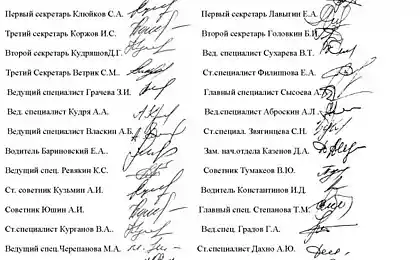821
"No one is interested in how hard you work"
At the end of a hard day you are seated on the sofa (or the bar) with a certain complacency: you are "plowed" as many hours put so much effort ... But no one cares, says Oliver Burkeman, a columnist for The Guardian. < Website strong > publishes a translation of his article with reductions.

«I'm sorry if you spoil the mood of a martini glass, but no. All of us are constantly confused with the real effort invested progress - for creative professionals is facing a waste of time and energy on activities maloosmyslennuyu instead of really important work. Psychologists have long noted the existence of some kind of "illusion of work" - when we assess the work of other people, in words we usually important only speed and the final result, but subconsciously we also important to see that they have invested a lot of effort into the work.
Economist Dan Ariely, who studies the behavior, told the story of a mechanic, which began to receive less tips and more complaints as his ability to grow
In 2011, researchers from the Harvard Business School, Ryan Buell and Michael Norton conducted a study and found that users of the site to search for tickets actually even preferred to await the outcome of the search for longer - provided that they demonstrate the progress of the process search and they could see that the search engine "working hard", fingering database each airline.
This is not just entertaining features of consumer behavior - such standards we apply to ourselves. You can call this phenomenon "the illusion of effort" - very easy to believe that the 10-hour day spent at the analysis of accumulated emails or something similar, is more valuable than two hours of intense mental work with full concentration.
Meanwhile, any writer, designer or web developer will tell you that it is two hours of hard work yield maximum results - both in financial terms and in the creative
In many companies, employees have created a strong sense that the best way to get a boost - to make a great effort measured in hours of work. In fact, if you are able to perform their duties brilliantly, but leave the office at three o'clock, a good boss must be pleased with you. For the same reason, asking for a pinch, you no sense to remind their zeal, if the boss appreciates only the results.
Often advised early in the day to deal first with the most important things. This is reasonable, because even then you dive into a routine, you will not spend her hours when you are full of energy. If your job allows, conduct an experiment: try to drastically reduce their working hours
But most importantly, remember painting the whole day by the minute, and working to exhaustion, you do not have to spend their time productively. This idea can be expressed more optimistic: it is possible for the creative realization you need a lot less effort than you might think ».
via www.psychologies.ru/self-knowledge/work/nikomu-ne-interesno-kak-userdno-vyi-rabotaete/

«I'm sorry if you spoil the mood of a martini glass, but no. All of us are constantly confused with the real effort invested progress - for creative professionals is facing a waste of time and energy on activities maloosmyslennuyu instead of really important work. Psychologists have long noted the existence of some kind of "illusion of work" - when we assess the work of other people, in words we usually important only speed and the final result, but subconsciously we also important to see that they have invested a lot of effort into the work.
Economist Dan Ariely, who studies the behavior, told the story of a mechanic, which began to receive less tips and more complaints as his ability to grow
In 2011, researchers from the Harvard Business School, Ryan Buell and Michael Norton conducted a study and found that users of the site to search for tickets actually even preferred to await the outcome of the search for longer - provided that they demonstrate the progress of the process search and they could see that the search engine "working hard", fingering database each airline.
This is not just entertaining features of consumer behavior - such standards we apply to ourselves. You can call this phenomenon "the illusion of effort" - very easy to believe that the 10-hour day spent at the analysis of accumulated emails or something similar, is more valuable than two hours of intense mental work with full concentration.
Meanwhile, any writer, designer or web developer will tell you that it is two hours of hard work yield maximum results - both in financial terms and in the creative
In many companies, employees have created a strong sense that the best way to get a boost - to make a great effort measured in hours of work. In fact, if you are able to perform their duties brilliantly, but leave the office at three o'clock, a good boss must be pleased with you. For the same reason, asking for a pinch, you no sense to remind their zeal, if the boss appreciates only the results.
Often advised early in the day to deal first with the most important things. This is reasonable, because even then you dive into a routine, you will not spend her hours when you are full of energy. If your job allows, conduct an experiment: try to drastically reduce their working hours
But most importantly, remember painting the whole day by the minute, and working to exhaustion, you do not have to spend their time productively. This idea can be expressed more optimistic: it is possible for the creative realization you need a lot less effort than you might think ».
via www.psychologies.ru/self-knowledge/work/nikomu-ne-interesno-kak-userdno-vyi-rabotaete/






















